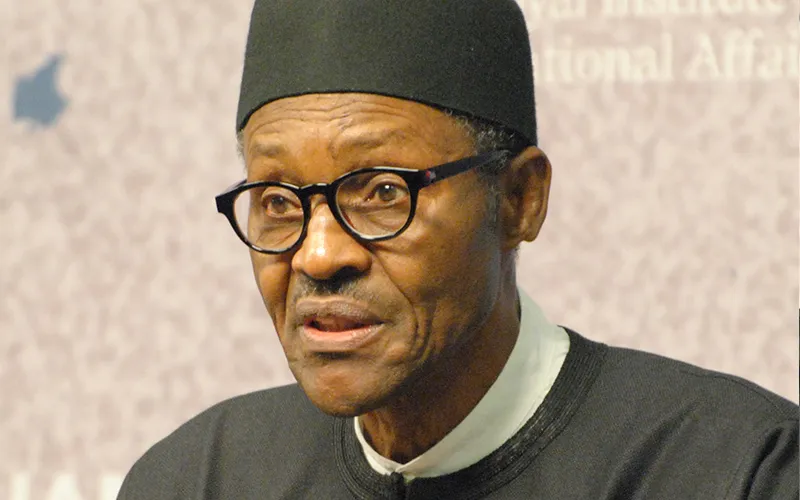-
CENTRES
Progammes & Centres
Location
The Nigerian presidential election on March 28 was nothing short of a historic turning point in the rather fragile democracy. An incumbent Nigerian President was voted out in a general election which was, on the whole, free and fair barring a few technical glitches.

The Nigerian presidential election on March 28 was nothing short of a historic turning point in the rather fragile democracy. An incumbent Nigerian President was voted out in a general election which was, on the whole, free and fair barring a few technical glitches. That by itself is a great surprise and could not have been imagined in the country's 55 years of independence. To add to the surprise, the incumbent President Goodluck Jonanthan conceded defeat with no violent incidents between the party workers of the victor and the vanquished. The Independent National Election Commission (INEC) has been justifiably praised for the excellent conduct of the elections in trying circumstances. The new President, Muhammadu Buhari, takes charge for four years on May 29.
Goodluck Jonanthan's party the PDP (People's Democratic Party) has been in power in Abuja (the national capital) since 1999 when democracy was restored in the country after decades of military rule. Jonanthan who was Vice President to Umaru Yar'Adua had to step in as the Head of State when the latter passed away in 2010 and completed the term till 2011 when he was re-elected. By contesting the election again in 2015, he upset the unwritten convention of the Presidency rotating between the Muslim dominated North and the Christian dominated South. For want of a better candidate, the PDP agreed to nominate him hoping for the best.
The victor, Muhammadu Buhari aged 72, is an ex-General and a former military head of State from 1983-85. He was put up as the All Progressive Congress (APC)'s candidate. This was a coalition of the major opposition parties. Buhari had contested in 2003, 2007 and 2011 without success, but seems to have been lucky this time the main reason being a united opposition. He is known to be incorruptible, a very rare quality in Nigerian politics. As the military Head of state, he had a no-nonsense approach and took some very bold and unpopular measures to clean up the system. Since he ruffled too many feathers, he was removed in a Coup d'�tat in 1985 by another General, Ibrahim Badamassi Babangida.
Buhari's victory was convincing as he received 15.4 million votes as compared to Jonanthan's 12.8 million. In the elections for the National Assembly which was held simultaneously, the APC again came out victorious. The next round of elections for the State Governors and local bodies will be held this week.
Jonathan's unpopularity has been growing over the last few years. Yet, the margin of defeat was surprising. Citing the serious security situation in the North East of the country due to terrorist attacks by Boko Haram, the government had postponed the elections by six weeks. Contrary to its expectations, this actually proved counterproductive. Ironically, in the six weeks, the Nigerian Armed Forces achieved a bigger success in controlling Boko Haram than in the previous four years. But this was mainly due to the cooperation of forces from smaller neighbours like Chad, Cameroon and Niger. Hence, the voters could see how the political elite of the country has been manipulating the Boko Haram crcisis.
Jonanthan's other major problem was the deteriorating economy with the precipitous fall in oil prices. Even though, Nigerian statistics have been claiming that the economy was getting diversified into agriculture, services and other sectors, the fact remains that oil contributes to 80 percent of Government revenues and 95 percent of exports. Even sectors like services and construction are dependent on the thriving oil industry. If the latter falters, the rest come down like a house of cards.
The power situation in the country continues to be in a pathetic state with no improvement in sight. Jonanthan promised to improve the sector in the 2011 elections but did nothing leading to further degradation of the sector. The country is so used to living on diesel generating sets that there are powerful vested interests which complicate any concerted action.
Perceptions about the corrupt nature of the Jonathan regime were also gaining in the last couple of years. Corruption touched levels which were outrageous even by Nigerian standards. The disclosure by the previous Governor of the Nigerian Central Bank, Sanusi that billions of oil revenues were not credited to the Government account reinforced the perception about misgovernance.
For Buhari, it is not going to be an easy ride. The three issues of priority for him will be to have a convincing victory over Boko Haram and to bring some order in the North East; to deal with the declining economy; and to find ways of increasing power generation. Added to these are other problems like the revival of militancy in the oil producing Niger Delta region and the perennial Nigerian malaise of wide spread corruption. In all these, Buhari may have to face entrenched vested interests in the country.
(H.H.S.Viswanathan is a Distinguished Fellow and Arushi Gupta a Research Assistant at Observer Research Foundation, Delhi)
The views expressed above belong to the author(s). ORF research and analyses now available on Telegram! Click here to access our curated content — blogs, longforms and interviews.